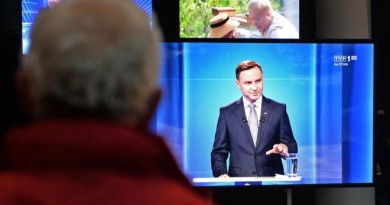U.N. Selects Guterres of Portugal as Its Next Leader
By Francesca Regalado
Managing Editor
The United Nations General Assembly approved on Thursday the appointment of Antonio Guterres as the organization’s ninth secretary-general. After three months and six straw polls, the Security Council recommended Guterres on October 6 for the General Assembly’s final confirmation. Guterres received 13 votes in favor, 2 “no opinion,” and no red “discourage” ballots from the Security Council in the final straw poll, cementing a lead he had held since the first round.
Among a dozen candidates, Guterres stood out for including in his vision statement not only sustainable development, climate change, and international cooperation, but also a plan he called the “centrality of prevention.” Drawing from a decade-long tenure as the United Nations High Commissioner on Refugees, Guterres, 67, insisted that prevention be the priority of the United Nations system. “The international community spends more time and resources managing crises than preventing them,” he said during his informal dialogue with the General Assembly in April.
Guterres, who served as prime minister of Portugal prior to leading the U.N. refugee agency, has had “the highest level of diplomatic exposure, and an inside understanding of how the U.N. works, which is an enviable combination few other candidates had,” said Gabriela Taveras, a senior Diplomacy major and president of the Seton Hall chapter of the United Nations Association (UNA-SHU). Guterres will be the first secretary-general who has served as his country’s head of government.
During an informal dialogue with the General Assembly in April, Mr. Guterres raised brows by saying, “I don’t like bureaucracy,” an unexpected statement from a candidate for the leadership of a bureaucratic international organization. At the same meeting, Guterres argued for clearer language instead of the United Nations’ propensity to communicate in esoteric acronyms, such as SDGs for the sustainable development goals.
At the General Assembly opening in October 2015, when he was still the High Commissioner for Refugees, Guterres warned that implementing the SDGs risks overlooking refugee populations. Although the SDGs are an important step forward, they “do not sufficiently take into account the reality that vast parts of the world today are mired in conflict,” betraying the Global Goals’ pledge of universality, he said.
Despite the desires and expectations of many, neither a female nor an Eastern European candidate was ultimately selected by the Security Council, an outcome that displeased Ambassador Maria Emma Mejia Velez of Colombia, who had led a coalition of 60 countries in pushing for a woman secretary-general. According to The New York Times, if the United Nations is intent on promoting gender equality, it has “the responsibility to lead by example,” Ambassador Mejia said.
Eastern Europe is the only region that has not held the position; unsurprisingly, Russia strongly advocated for an Eastern European to succeed Ban Ki-moon, a factor that may have turned the tide against the director-general of UNESCO, Irina Bokova. Since her nomination by her home country, Bulgaria, in February, Bokova was touted as a frontrunner with the advantages of being a U.N. insider, an Eastern European, and a woman. Bokova, who was elected to lead UNESCO twice and has held the position since 2009, emphasized in her candidacy intercultural dialogue and education as a driver of sustainable development.
But Bokova lost the Bulgarian government’s support after disappointing results in five Security Council straw polls. Although it was late in the process, Bulgaria nominated in September Kristalina Georgieva, a vice president of the European Commission who was seen as close to the West, according to The New York Times. In the final straw poll, both Bokova and Georgieva received two “discourage” ballots from the Permanent Five members of the Security Council.
Given the recent diplomatic disputes with Russia, the Security Council would be wary of electing an Eastern European secretary-general who “could be easily swayed” by Russia, said Taveras, the president of UNA-SHU.
Father Brian Muzas, a professor at the School of Diplomacy and the secretary of the U.N. Non-Governmental Organization/Department of Public Information executive committee, thought the unprecedented openness of the selection process also caused the elimination of promising candidates. “Some of the candidates, because of the public visibility inherent in the more open process, hurt their own chances in ways that they would not have done had the process been more closed,” Father Muzas said.
This year’s selection process was promoted by the United Nations as the most open and transparent in its 71-year history, featuring the first globally televised and webcast debate in July, where candidates took questions in a town hall-style forum. Individual informal dialogues between the candidates and the General Assembly were also televised, and the results of the Security Council’s straw polls were made public.
The negotiations among the Security Council members, however, continued behind closed doors. “It is hard to judge whether or not there is an ideal degree of openness, for the selection outcome is essentially a negotiated outcome,” Father Muzas said.
The unexpected elevation of Guterres as the consistent frontrunner was “more an issue of geographical bias than one against women,” Taveras said. Interestingly, while he received no “discourage” votes, only four Permanent Five members encouraged Guterres’s nomination – one submitted a “no opinion” ballot. As the Security Council straw polls were taken anonymously, the process could be made more transparent if Security Council members were “required to comment if they vote against a given candidate,” Taveras said.
Mr. Guterres will begin his term on January 1. Guterres, who said “gender parity” within the United Nations is crucial, is expected to appoint a woman as deputy secretary-general, according to the BBC.



Read more about the new #UNSG via @EnvoyAtSHU: https://t.co/GxHmsrkvSQ #Roadto2030